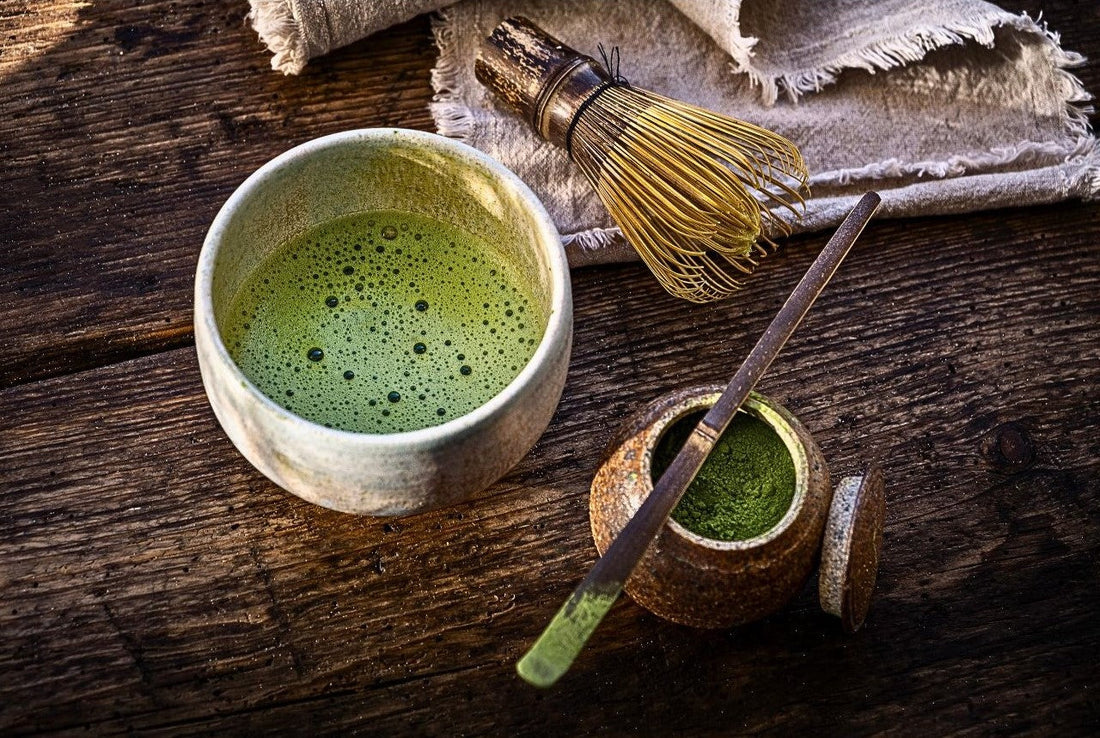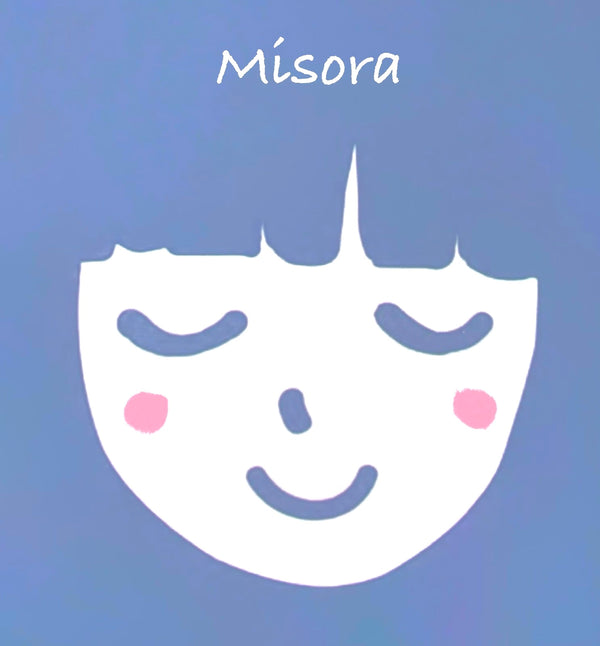
6+ amazing health benefits of matcha
Share
Matcha is a green tea that not only has an eye-catching color but also has a unique flavor, helps increase sustainable energy, many culinary options and is full of health benefits. So let's explore with Misora the wonderful values of matcha.
What is Matcha?
Like green tea, matcha comes from the Camellia sinensis plant. However, it is carefully grown in a completely different way, which helps matcha bring many nutrients to human health.
Matcha is made from shade-cultivated green tea leaves that have been finely grounded on a stone mill, containing deep flavour and nutrients of leaves. About 20-30 days before harvest, farmers will cover the tea plants from sunlight. This helps the plants increase chlorophyll production, increasing the content of amino acids and making the leaves a darker green color. When harvesting tea leaves, the stems and veins are removed, the remaining part is quickly dried and ground into a fine powder that we call matcha.
Benefits of matcha
Matcha contains nutrients found in the whole tea leaf, providing a significant amount of bioactive compounds, including L-theanine, quercetin, catechins, caffeine, and chlorophyll. So what are the health benefits of drinking matcha tea every day?
Rich in antioxidants
Matcha is a special green tea powder that provides powerful antioxidants, vitamins B1, B2, B6, vitamin C, vitamin E... for the skin. Of particular note is epigallocatechin gallate (EGCG)- an effective compound that helps reduce inflammation, supports weight loss and protects the body from certain chronic diseases such as heart disease and cancer. In particular, matcha green tea has a significantly higher antioxidant content than regular green tea, helping to enhance the body's ability to protect cells and overall health.
Enhance brain function
In this green tea, nutritionists also found a small amount of caffeine and the amino acid L-theanine. Thanks to that, using matcha tea properly will also help people be more alert, improve memory, and reduce feelings of restlessness and anxiety.
In addition, the EGCG and caffeine content in matcha are also very important factors in helping to reduce stress, thereby preventing damage to nerve cells in the brain, helping to enhance memory and working more effectively.
Improve cardiovascular health
Matcha contains many compounds with powerful antioxidant properties that help reduce inflammation, increase insulin sensitivity, reduce total cholesterol and LDL cholesterol, and reduce triglycerides, thereby effectively preventing cardiovascular disease. Not only that, this type of tea powder also has the effect of enhancing antioxidant enzymes, protecting blood vessel walls, thereby effectively regulating blood pressure.
Helps prevent cancer
Some of the components in matcha have the effect of inhibiting the activity of cancer cells, reducing the risk of cell damage and the risk of tumor formation. Researchers have shown that prostate cancer patients who drink 5 cups of matcha a day will reduce the possibility of cancer cells continuing to grow and spread by half compared to those who drink less than 1 cup or do not drink. However, to get clearer and more certain results, scientists still need more time to study the full potential of this green tea in preventing cancer.
Improve bowel function
Matcha green tea is also considered a very good drink for intestinal health. EGCG in this tea has the effect of fighting harmful bacteria while stimulating the activity of beneficial bacteria, thereby supporting intestinal health. This is also the reason why many patients with irritable bowel syndrome, inflammatory bowel disease or intestinal bacterial overgrowth,... choose to add this drink to their diet.
Weight control support
The rich content of EGCG and caffeine (theophylline) in matcha are two important factors that help burn calories effectively, providing enough energy for the drinker within 6 hours without causing any negative effects. From there, it helps you control your weight effectively.
Helps control blood sugar levels
The antioxidants and polyphenols in matcha tea help improve insulin sensitivity and help lower blood sugar levels. Regular consumption of matcha green tea can reduce bad cholesterol while also increasing good cholesterol and improving blood vessel function.
Should I drink matcha every day?
A cup of matcha a day can have more health benefits than you think. Drinking matcha regularly is good and beneficial. It is a great drink to have in the morning because it contains L-theanine and caffeine. L-theanine in particular helps to offset the jitters associated with caffeine consumption while promoting a sense of calm and mental clarity. In addition, there are many delicious and easy-to-make dishes and drinks made from matcha powder to change up your daily taste.
See more: >> Let’s make matcha taste better
Side effects and risks of consuming too much matcha
Despite its potential health benefits, it's best to consume matcha in moderation.
Matcha contains more caffeine than green tea. Moderate amounts of caffeine can be beneficial, but too much can cause side effects, such as increased heart rate, insomnia, or headaches in people who are sensitive to caffeine.
Some scientists say that consuming high amounts of catechins can affect liver enzyme function and detoxification pathways in the body. Therefore, people with chronic diseases and those taking medications should talk to their doctors to make sure matcha is safe to use.
Studies suggest that 338 mg of catechins and EGCG per day is a safe intake for adults. This is about 4 grams of matcha, which is about 2 teaspoons.
However, the maximum amount of matcha powder that can be tolerated may vary from person to person. To ensure health safety, consume matcha in moderation.
More over, looking for certified organic matcha products to reduce the risk of impurities. There are many places on the market today that sell substandard goods.
You can refer to the high-quality matcha products that Misora carefully selects and imports from reputable companies in Japan.

![[ No. 6] Marukyu Koyamaen Kyoto Premium Matcha (Wako- 和光 )](http://misora.co.uk/cdn/shop/files/mk-wako20kan_1.webp?v=1739037065&width=533)
![[ No. 9] Marukyu Koyamaen Kyoto Premium Matcha ( Isuzu- 五十鈴)](http://misora.co.uk/cdn/shop/files/Marukyu_Isuzu_3fab3424-3b6e-45d8-8d01-82a2e6c9804b.webp?v=1740885179&width=533)
![[ No. 4] Marukyu Koyamaen Kyoto Premium Matcha (Unkaku-雲鶴 )](http://misora.co.uk/cdn/shop/files/mk-unkaku20kan.webp?v=1739036821&width=533)
![[No. 10] Marukyu Koyamaen Kyoto Premium Matcha ( Aoarashi- 青嵐)](http://misora.co.uk/cdn/shop/files/Marukyu_Matcha_40_Hero.webp?v=1740885075&width=533)